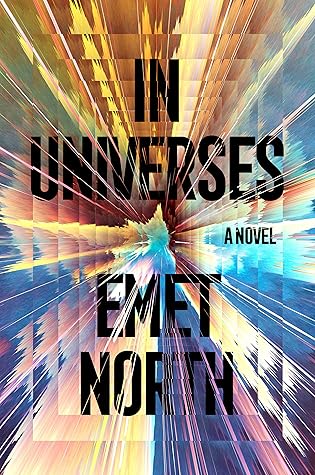More on this book
Community
Kindle Notes & Highlights
Raffi wanders around the neighborhood, but she’s forgotten the trick to being alone. A dog snarls at her, the crows overhead scream. She goes back to the pink house, but she’s afraid of all the emptiness inside, so she sits in the yard and plucks puffball mushrooms and squishes them between her thumb and forefinger, and thinks at each one your fault, stupid, bad and the mushrooms send up tiny apologetic clouds and she doesn’t feel any better.
She walks and she thinks about how she has survived every loss she’d imagined unsurvivable. She has survived and her survival is a miracle and the miracle is a cruelty. A cruelty, how a body can endure, how the heart circulates blood and the lungs suck in air and the whole machine keeps running, regardless.
My mother is a horde of bees. There is one bee for each part of her. My mother of truth-telling, my mother of discipline, my mother of affection. They all look the same—have you ever tried to tell two bees apart?—so I never know which mother I am talking to until she responds. This is the worst part, the moment of uncertainty.
It’s hard to hold all thirteen cards in my hand, but after a few rounds I win a game. “Who taught you to play so good?” my bubbe asks. She is a horde of muskrats, soft-looking but hardy. Your bubbe has survived things the rest of us can’t imagine, my mother has said to me, many times. I know she means Auschwitz, and in spite of the statement, I imagine my bubbe’s muskrats forced into cattle cars, shoved beneath the gates that say ARBEIT MACHT FREI. But, of course, my bubbe wasn’t a motherhorde then. Just a girl. My mother talks with my bubbe and zeyde about her childhood, about nieces and
...more
The house tries to help Raffi. It closes doors softly behind them, it warms the light that slants through the windows. The house loves Raffi—how could it not, when it knows them so entirely?
The house got a Room of Unexpected Joy, for the feeling of driving around a bend in the road and seeing the mountains appear, for discovering that it’s possible to invent a relationship that doesn’t have anything to do with the drop-down menu life presents you. Its name remained the House of Discontent, but it didn’t mind. It knew that whatever its name, it had enough rooms for every sort of emotion.
It doesn’t hurt him to think about it now. In campfire stories, ghosts have many regrets. But in reality regret is a heavy emotion and the ghost is insubstantial. Anytime he tries to hold on to regret, it falls straight through. What the ghost wishes is that Raffi would walk down the basement stairs, so he could tell them that none of this is their fault. That whatever story they’re telling themself is the wrong one. He would tell them it isn’t so bad being dead. He would say, I’m sorry I’ve left you all alone, but you’re going to be okay, and Raffi would shake their head, and they would both
...more
The way the ghost had shown them that family wasn’t about blood. All of it irreplaceable. They run into the brick wall of that word over and over, and it never hurts any less.
Then, they try to imagine new futures. They make lists: Here is what I used to love, here is what I love now, here is what I might love in the future. Here is what I am left with. What happens is unexpected—not a construction but a deconstruction. A self-portrait in retrograde, a shedding of skins and selves, of all the people they have tried to be, all the stories they have told themself about who they are. Deep in the woods with a bear by their side, they dream new possibilities into existence.


